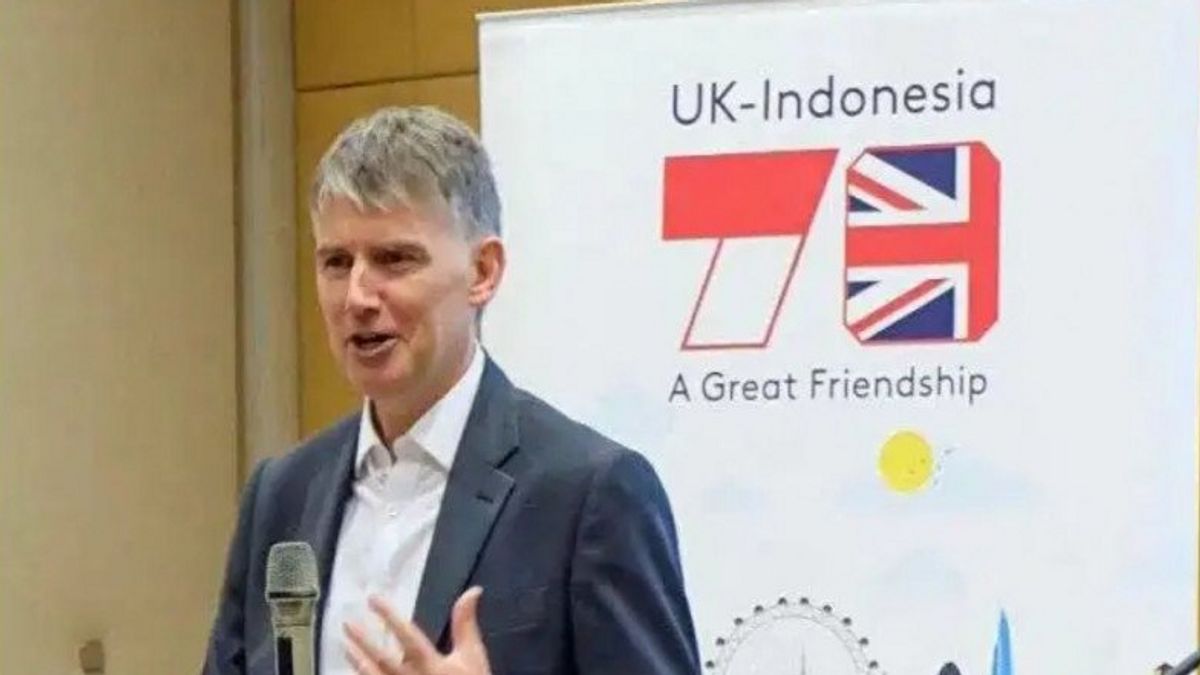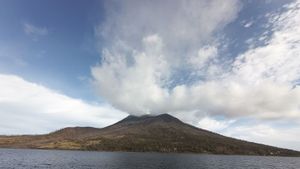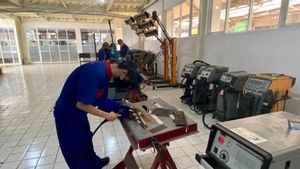
JAKARTA - The British government and the Indonesian government will launch a cooperation project in the field of low-carbon transportation in Indonesia worth £9 million or around IDR 162 billion. One of them is related to the integration of LRT development, transit-oriented development, and land value capture at Metropolitan Semarang.
On Tuesday 5 July, a ceremonial launch of a program called 'Future Cities: UK-Indonesia Low Carbon Partnership' was held. Previously, the signing of the Implementing Agreement to start the cooperation was carried out by the Secretary-General of the Ministry of Transportation Novie Riyanto and the British Ambassador to Indonesia and Timor Leste Owen Jenkins.
The signing is a follow-up to the memorandum of understanding signed by the Indonesian Minister of Transportation Budi Karya Sumadi with the British Minister of Transportation Wendy Morton MP in June 2022.
This program is the first step in the commitment of the two countries to mitigate the impacts of climate change through the development of environmentally friendly urban public transportation.
British Ambassador to Indonesia and Timor Leste Owen Jenkins welcomed this collaboration. According to him, partnerships in the transportation sector are very important, so that they are more confident in carrying out the commitments from the Glasgow conference and also in realizing the transition to zero-emission vehicles.
"We are trying to enforce the Paris Agreement to suppress the increase in the earth's temperature below 1.5 degrees Celsius, and trying to carry out decarbonization in the transportation sector because 25 percent of GHG emissions are generated from the transportation sector", he said in an official statement, quoted Wednesday, July 6.
Jenkins said the UK Government through the UK Partnering for Accelerated Climate Transition (UK PACT) provided funding of £9 million. This funding is for the development of environmentally friendly urban transportation in several provinces in Indonesia, namely North Sumatra, DKI Jakarta, West Java, Central Java, East Java, and South Sulawesi.
Furthermore, Jenkins said that through this program, the two countries jointly want to capture great opportunities such as the development of roadmaps for efficient electrification of public transportation, the integration of climate-friendly solutions into national and regional development planning, and the design of low-carbon transportation projects that can attract investigation.
There are five projects in the Future Cities program, namely first, the integration of LRT development, transit-oriented development, and land value capture in Metropolitan Semarang. Second, the transition to inclusive low-carbon transportation through improving safety aspects for the vulnerable.
Third, strengthening sustainable urban transportation in coastal cities. Fourth, inclusive transportation decarbonization in Indonesia. Lastly, clean mobility for the Jakarta metropolitan area.
Meanwhile, Director General of Land Transportation Hendro Sugiatno said the Indonesian government through the Ministry of Transportation welcomed the implementation of this cooperation program.
"This program is expected to help develop a sustainable and environmentally friendly urban transportation system in Indonesia", said Director General Hendro.
He revealed that efforts to improve the quality of transportation are in line with efforts to increase economic growth and mitigate the impact of climate change. In the 2020-2024 RPJMN, the Ministry of Transportation has the task not only to improve urban connectivity through the provision of mass public transportation but also to contribute to emission reduction (decarbonization) in the transportation sector.
"We are developing several urban mass public transportations, both in the form of Bus Rapid Transit (BRT) and in the rail-based rail sector, which is integrated and also uses electrical energy", he explained.
Through this collaboration, he continued, it is hoped that these efforts can be carried out in a more measurable, structured, accelerated, and reliable manner in planning and implementing a sustainable and environmentally friendly transportation system.
The English, Chinese, Japanese, Arabic, and French versions are automatically generated by the AI. So there may still be inaccuracies in translating, please always see Indonesian as our main language. (system supported by DigitalSiber.id)












